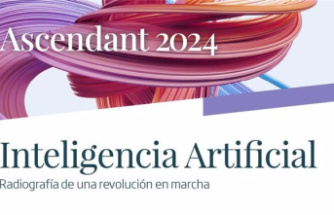MADRID, 4 Feb. (EUROPA PRESS) -
The Ministry of Labor and Social Economy will meet this Monday with social agents to address the unemployment benefit reform after the Plenary Session of Congress, with votes against Podemos, PP and Vox, overturned the reform designed by the Government .
After this setback, the second vice president of the Government and Minister of Labor, Yolanda Díaz, criticized Podemos's refusal to support the law and announced that it would be negotiated with unions and employers, which could not be done on the previous occasion due to the need for Government to approve it for the receipt of the fourth disbursement of European funds.
The unemployment benefit reform, according to Díaz, is "the only" reform that the Government could not submit to social dialogue, since it had to be approved before December 31, 2023 as it was one of the milestones contemplated in the Recovery Plan.
"Now, we will open the social dialogue table and this reform will be agreed upon with the social agents," Díaz stressed in mid-January, after the reform did not go ahead in Congress.
The Secretary of State for Labor, Joaquín Pérez Rey, stated last Friday that the Government's approach to the negotiation with the social agents of this reform "is based on the decree" that it already presented and that was not able to be validated.
Pérez Rey defends that the norm that was brought to the Lower House "represented a net increase in workers' rights", so "the Government's approach is based on that decree that was full of improvements."
"Our objective is to maintain them," the Secretary of State remarked on Friday, adding that "the union organizations themselves had requested the validation of the decree from the political forces" because they understood that it represented a "significant advance" in terms of protecting the level of care. of unemployment.
"We are going to wait to see what the approaches of the social agents are, which we had already explored before the unvalidated Royal Decree-Law, but not with the parsimony and pause that we would have liked due to the urgency of the rule," he explained.
The truth is that the social agents, at the time, did not approve of the Government reform, especially the CEOE. The unions saw it as insufficient, although they recognized that it contained "significant progress." Díaz's announcement that he was going to open up negotiations with them was, in principle, well received by both parties.
The reform designed by the Government and overturned by Congress raised the amount of the subsidy during the first year of receipt, made it compatible with employment during the first 180 days without loss of benefit, and was linked to the signing of an activity agreement. by its beneficiaries.
Specifically, the Labor text raised the unemployment benefit, currently 480 euros per month, the equivalent of 80% of the Iprem, to 570 euros during the first six months of receipt (95% of the Iprem) and to 540 euros per month in the six following months (90% of the Iprem) to then recover 80% of the Iprem until its termination, which remained at a maximum of 30 months, depending on age, family circumstances and the duration of the exhausted benefit.
The reform 'knocked down' by Congress incorporated into the subsidy those under 45 years of age without family responsibilities (about 150,000, according to Labor estimates) and possible agrarians residing outside Andalusia and Extremadura (about 250,000), as well as workers cross-border routes of Ceuta and Melilla.
The rule established the possibility of making the subsidy compatible for each new full- or part-time job during the first 180 days without loss of amount and eliminated the month of waiting after exhaustion of the contributory benefit to submit the application, also extending it to six months. the application deadline so that the job search "does not collide" with the need to apply for the subsidy within peremptory deadlines.
The benefit was linked in the text to a personalized activation itinerary for employment through the signing of an activity agreement within the framework of the Employment Law.
The Government reform maintained the amount of the subsidy for those over 52 years of age but introduced changes in the contribution that, according to the Executive, were consistent with the rise in the interprofessional minimum wage (SMI).
Precisely, Podemos rejected the rule in Congress because the progressive reduction in contributions for those over 52 years of age who receive the subsidy was not eliminated, which would translate into a "cut" in their future retirement pensions.
The Government also introduced in this decree the prevalence of regional agreements over sectoral and state agreements that had been agreed with the PNE in exchange for supporting the investiture of Pedro Sánchez, which generated unrest among social agents.
After the measure fell due to the rejection of the Lower House, Vice President Díaz said that the Government would keep its word and approve it.













